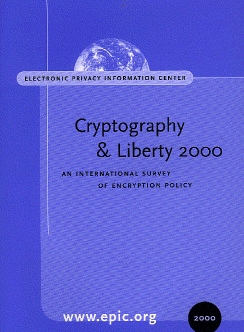Cryptography & Liberty 2000
|
Including: Country Reports OECD Guidelines Wassenaar Arrangement GILC Resolution on Cryptography |

|
ISBN: 1893044076 |
|
Also available: |
||
|
In this third survey of encryption policy around the globe, the Electronic Privacy Information Center (EPIC) finds that the effort to reduce export regulations that limit the availability of encryption has largely succeeded. The rise of electronic commerce and the need to protect privacy and increase the security of the Internet have resulted in the development of policies that favor the spread of strong encryption worldwide. However, some countries are considering "lawful access" requirements that could force users to disclose private keys and decrypted files to government agencies. Several governments are also proposing to give intelligence and law enforcement agencies new powers to conduct surveillance, break into private offices and hack computers to obtain encryption keys and other confidential information. These agencies are also seeking substantial increases in budgets and legal authority. While the impact of export controls on the use and production of encryption continues to diminish, new domestic regulations and new powers for law enforcement authorities raise ongoing questions about the freedom to use encryption and other privacy enhancing techniques. |
||